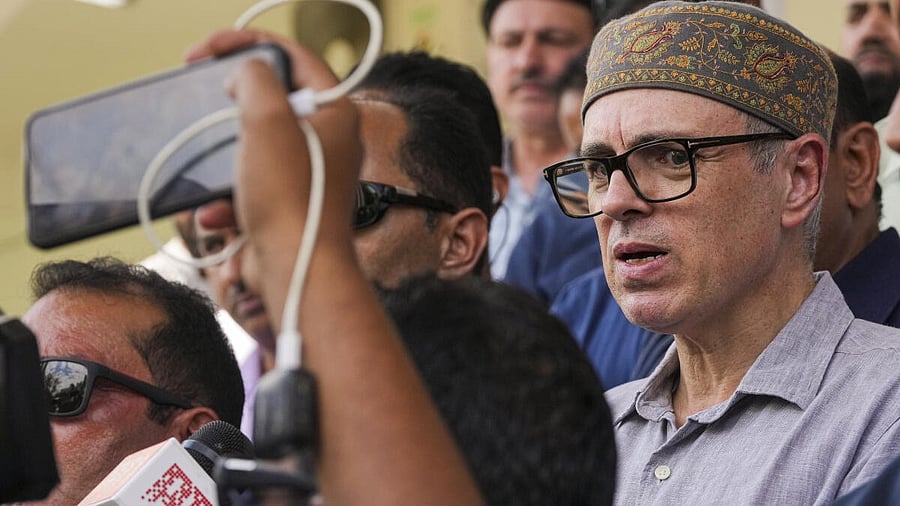
Jammu and Kashmir Chief Minister Omar Abdullah
Credit: PTI Photo
Srinagar: The National Conference (NC)-led government in Jammu and Kashmir is unlikely to hold Panchayat and Urban Local Body (ULB) elections any time soon, with officials suggesting the exercise may not happen before at least April next year.
Even as New Delhi presses for revival of grassroots democracy, the Omar Abdullah government appears to be focused on the larger political battle for restoration of statehood.
Government insiders say there has been no move on key prerequisites—implementing the recommendations of a commission on reservation for Other Backward Classes (OBCs) and appointing a State Election Commissioner. “There are no chances of holding Panchayat and Urban Local Body polls this year. As of now, we have not received any such indication from the government,” a senior official said.
The last Panchayat and ULB elections were held in 2018 during Governor’s rule, after a gap of seven years when J&K was a state. The NC and opposition PDP boycotted those polls after reports that the Centre would revoke Article 35-A, which gave special rights to the people in the erstwhile state and barred outsiders from owning immovable property.
With their term long expired, grassroots institutions remain defunct, and developmental works are being handled directly by bureaucrats.
While the Union Ministry of Panchayati Raj had written to J&K in December 2024 urging fresh polls, the NC government is treading cautiously. Leaders argue that without full statehood, Panchayati Raj will remain a hollow exercise. “You cannot talk of empowerment at the village level when the state itself has been disempowered,” an NC MLA said.
The hesitation also reflects a deeper, older tension. Since Panchayati Raj was introduced in J&K in 1978, successive governments have been reluctant to share real power with village-level representatives. The 1978 elections under Sheikh Abdullah generated hope, but Panchayats were never given financial independence. In 2011, Omar Abdullah’s government held polls after a long gap, but most bodies remained inactive.
The 2011 Panchayat elections were among the most participatory, with a turnout of over 80 percent. Yet, despite promises, Panchayats were denied control over funds and planning. Local representatives repeatedly complained of being sidelined by MLAs and bureaucrats.
This historical pattern reflects a consistent unease among MLAs. Strong Panchayats and municipalities are seen as diluting their authority and patronage networks. “Legislators across parties have never wanted genuine devolution. They fear losing control over development funds and influence in their constituencies,” a Srinagar-based political analyst noted.
For now, with statehood at the top of its agenda and legislators wary of ceding space, Panchayat and ULB elections in Jammu and Kashmir are set to remain on hold.